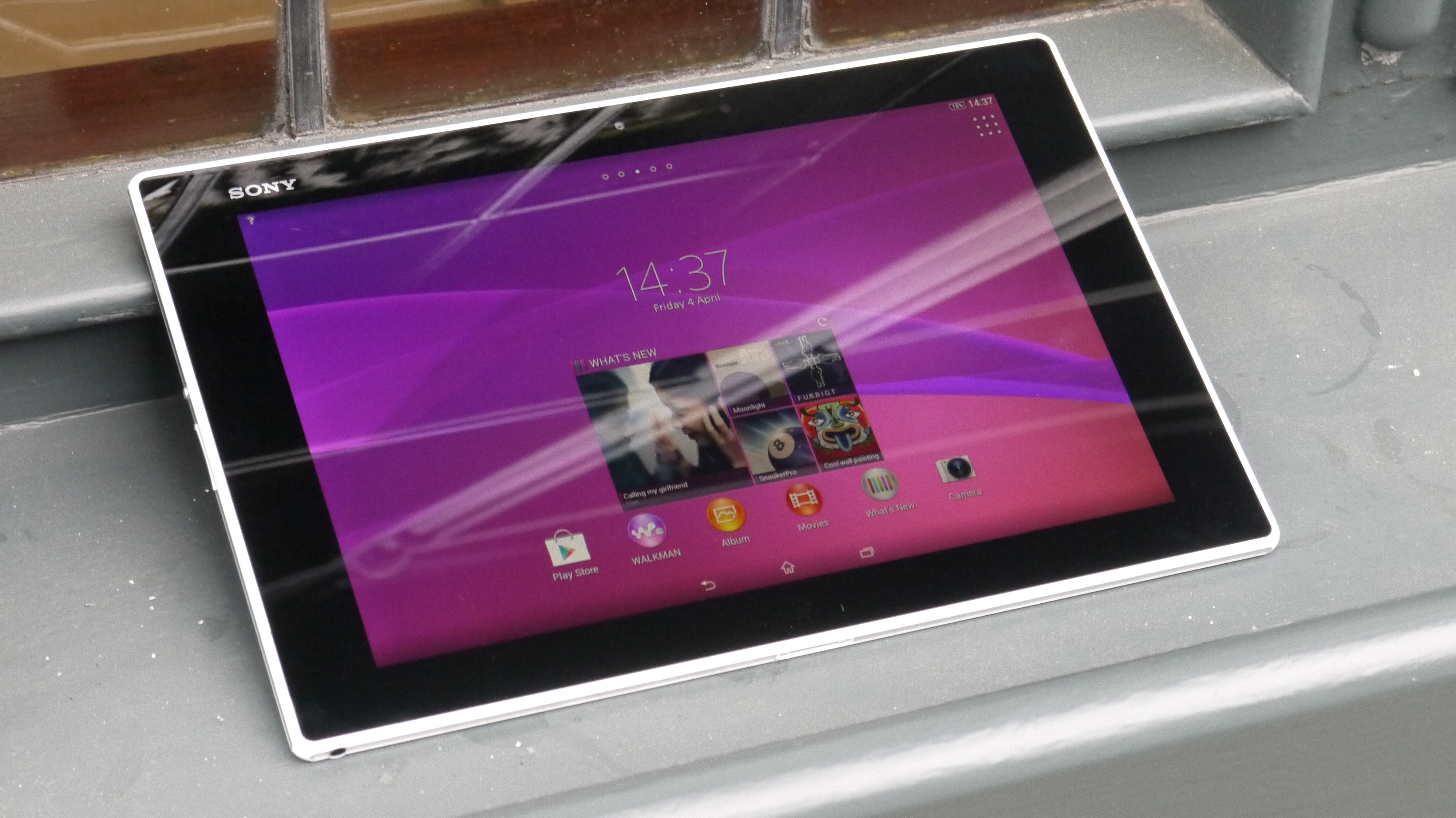Why you can trust TechRadar
Sony's custom UI has always been one of the less obtrusive of the Android mob. It's certainly not in the same realm of business as Samsung's TouchWiz or HTC's Sense interfaces.
The Sony Xperia Z2 Tablet ships with Android 4.4.2 KitKat, which is the latest version of the OS, and with that comes the latest round of Sony tweaks.
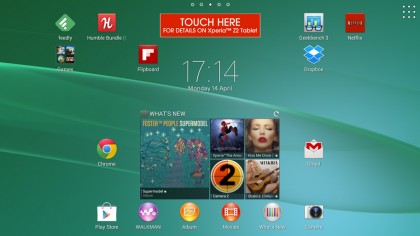
Commendably, the company appears to be meddling less and is inching ever further towards stock Android with its customizations. For example, the notification menus now sit relatively untouched in their natural place at the top of the screen rather than at the bottom.
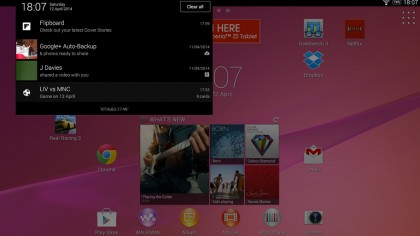
I liked the no-nonsense Edit button on the right-hand settings shortcut menu, which lets you quickly shuffle the available toggles. This is one area that tends to be quite personal in my experience, so the ability to swap in (for example) Airplane mode without delving through menus is welcome.
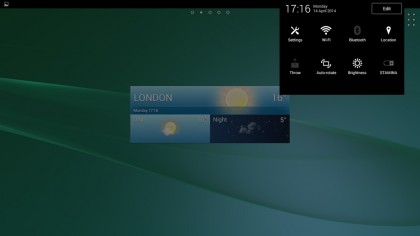
Sony has also gone with Google's interface lead with regard to core controls. That means three virtual controls for back, home, and multitasking at the bottom of the screen.
This can lead to a few inconsistencies when it comes to applications, with the buttons occasionally not present when you want them (try swiping from the top or bottom of the screen) and at other times there when you don't want them to be (such as in some games).
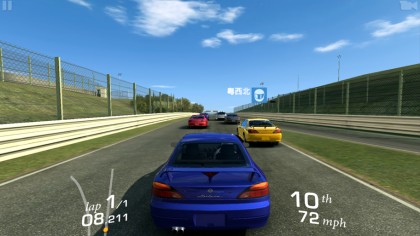
Where I found these on-screen buttons most problematic was with typing. I initially found myself hitting the back or home keys when I meant to hit the space bar.
Sign up for breaking news, reviews, opinion, top tech deals, and more.
Elsewhere, Sony's expertly realized windowed app system returns, but this time it's tucked away inside the multitasking menu. The system itself works very well, and seems better implemented, if less extensive, than Samsung's equivalent feature.
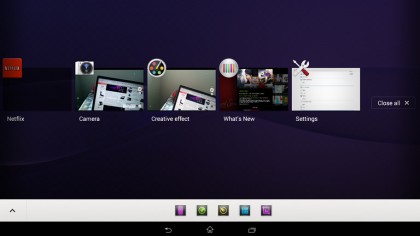
It means that you can run apps in a small window while you're doing something else, whether that's a web browser for a quick search, a calculator when you want to quickly figure something out, or a timer when... well, you get the drift.
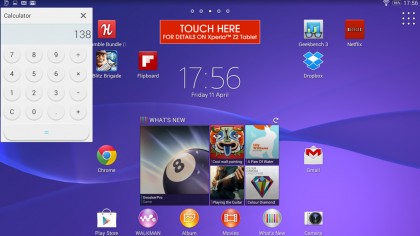
Sony's default widgets also seem a lot slicker than many of its rivals. The picture carousel lets you flip through your recent snaps direct from the home screen. There's a slight moment of graininess while the high res thumbnail loads up, but the actual carousel animation is impressively smooth.
Alongside this, there's a Walkman widget and a number of shortcuts to various camera modes, so you can jump straight to the Timeshift burst mode or the stylish background defocus effect without navigating through the camera menu.
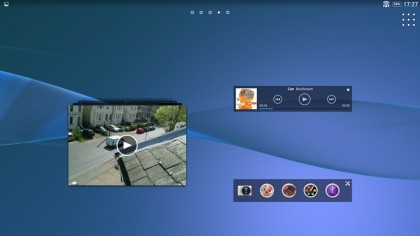
Of course, all of this can be chopped, changed, and removed at will. All in all, it's one of the most pleasant and smooth Android tablet UIs to use outside of stock Android itself.
Besides Sony's restrained UI work, the sheer smoothness of the Xperia Z2 Tablet's UI can be attributed to the strength of the hardware. This is a blazingly fast piece of hardware.
That's thanks to a range-topping Snapdragon 801 CPU clocked at 2.3GHz, which is backed by a generous 3GB of RAM (50% more than the Samsung Galaxy Tab Pro 10.1).
Add in the fact that this hardware is pushing around fewer pixels than on rival tablets, and you'll appreciate why the Z2 Tablet handles everything so effortlessly.
Homescreen transitions are silky, full web pages load up quickly, and 3D games perform admirably.
GeekBench 3 performance tests reveal no pronounced difference between the Xperia Z2 Tablet with its Snapdragon 801 CPU and those devices (like much of Samsung's current tablet range) running on the Snapdragon 800 CPU.
Of course, they're essentially the same chip, but with very minor improvements to things like image processing speed. It's slightly behind the iPad Air in pure benchmarking numbers, but in general use it's more than snappy enough.
Qualcomm did claim that the Snapdragon 801 would offer modest gains in performance too, so it's a bit of a shame that we don't see any sign of that in this standard Android hardware test.
Regardless, with an average score of 934 single core and 2,752 multi, it's right near the top of the pile in performance terms. And in the hands - which is where it really matters - the Xperia Z2 tablet flies.
Current page: Interface and performance
Prev Page Key features Next Page Battery life and the essentials
Jon is a freelance journalist who has been covering tech since the dawn of the smartphone era. Besides TechRadar, his words and pictures have appeared in The Telegraph, ShortList, Tech Advisor, Trusted Reviews, Expert Reviews, and more. He largely covers consumer technology, with a particular focus on smartphones and tablets. However, he's also been known to dabble in the worlds of entertainment and video games.
